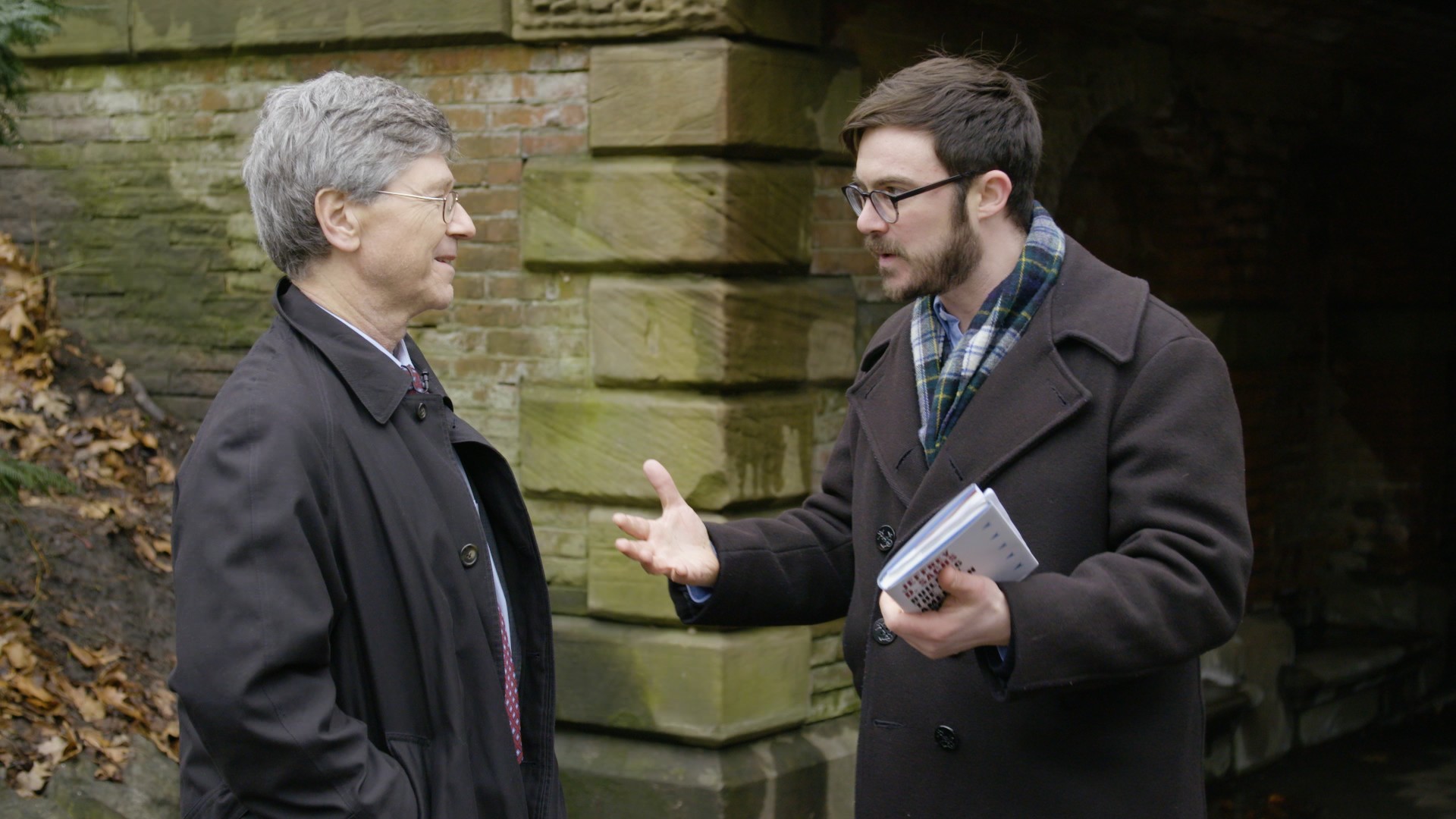Donald Trump’s election to the presidency was many things: a cry for help from Americans who’ve felt left behind, a populist roar of anger against globalization, a repudiation of a gridlocked political system.But it was also a wholesale rejection of the idea of expertise, especially economic expertise. And that rejection seems set to carry through to the way Trump governs. (Only one member of his staff, Peter Navarro, whose staunch anti-trade views make him a true outlier among his peers, prominently identifies himself as an economist.)Perhaps no one embodies the idea of global economic expertise than Jeffrey Sachs. An expert in international development whose career has largely focused on poor and emerging economies, Sachs has increasingly started to turn his attention to the state of the U.S. economy.In his new book, “Building the New American Economy,” he lays out his prescriptions for the U.S. economy — including higher taxes on the wealthy and large investments in R&D and physical infrastructure aimed at boosting long-term productivity — and why liberal economists shouldn’t give up on their priorities under the Trump administration.“The drivers of our politics since Jan. 20, 1981 — that’s the moment Ronald Reagan stepped into the presidency — was basically one thing and that is: Cut taxes for the rich,” Sachs told us as part of VICE News’ Random Walks, a series of interviews with prominent economists. “And it’s kind of an obsession now in American politics because the rich control the agenda.”A tenured Harvard economics professor while still in his late 20s, Sachs made his name in the 1980s as a sort of international economic fix-it man. He recommended a blend of international aid for struggling economies — such as writing down debt owed to foreign creditors — with economic tough-love tactics, like cutting government deficits, tight monetary policy, and deregulation, known as “shock therapy.” (He counts Bolivia, Brazil, Ecuador, Poland, Estonia, and Slovenia among the countries he advised.)In the early 1990s, Sachs was one of the Western economists who attempted to steer the former Soviet Union onto the path of American-style capitalism. It didn’t work out well. “We pretended to help them and they pretended to reform,” he told the New York Times in 1994.In recent years, Sachs shifted his focus to “sustainable development,” leading Columbia University’s Earth Institute for 14 years and serving as special adviser to the United Nations on its Millennium Development Goals.And while Sachs has spent his career largely in the world’s developing economies, recently he has focused on the U.S. economy. During the 2016 campaign he served for a time as an adviser to Bernie Sanders. Now, his new book represents what kind of economic policy he thinks the U.S. needs and his thoughts on whether it could be enacted under a Trump administration.
An expert in international development whose career has largely focused on poor and emerging economies, Sachs has increasingly started to turn his attention to the state of the U.S. economy.In his new book, “Building the New American Economy,” he lays out his prescriptions for the U.S. economy — including higher taxes on the wealthy and large investments in R&D and physical infrastructure aimed at boosting long-term productivity — and why liberal economists shouldn’t give up on their priorities under the Trump administration.“The drivers of our politics since Jan. 20, 1981 — that’s the moment Ronald Reagan stepped into the presidency — was basically one thing and that is: Cut taxes for the rich,” Sachs told us as part of VICE News’ Random Walks, a series of interviews with prominent economists. “And it’s kind of an obsession now in American politics because the rich control the agenda.”A tenured Harvard economics professor while still in his late 20s, Sachs made his name in the 1980s as a sort of international economic fix-it man. He recommended a blend of international aid for struggling economies — such as writing down debt owed to foreign creditors — with economic tough-love tactics, like cutting government deficits, tight monetary policy, and deregulation, known as “shock therapy.” (He counts Bolivia, Brazil, Ecuador, Poland, Estonia, and Slovenia among the countries he advised.)In the early 1990s, Sachs was one of the Western economists who attempted to steer the former Soviet Union onto the path of American-style capitalism. It didn’t work out well. “We pretended to help them and they pretended to reform,” he told the New York Times in 1994.In recent years, Sachs shifted his focus to “sustainable development,” leading Columbia University’s Earth Institute for 14 years and serving as special adviser to the United Nations on its Millennium Development Goals.And while Sachs has spent his career largely in the world’s developing economies, recently he has focused on the U.S. economy. During the 2016 campaign he served for a time as an adviser to Bernie Sanders. Now, his new book represents what kind of economic policy he thinks the U.S. needs and his thoughts on whether it could be enacted under a Trump administration.
Advertisement
